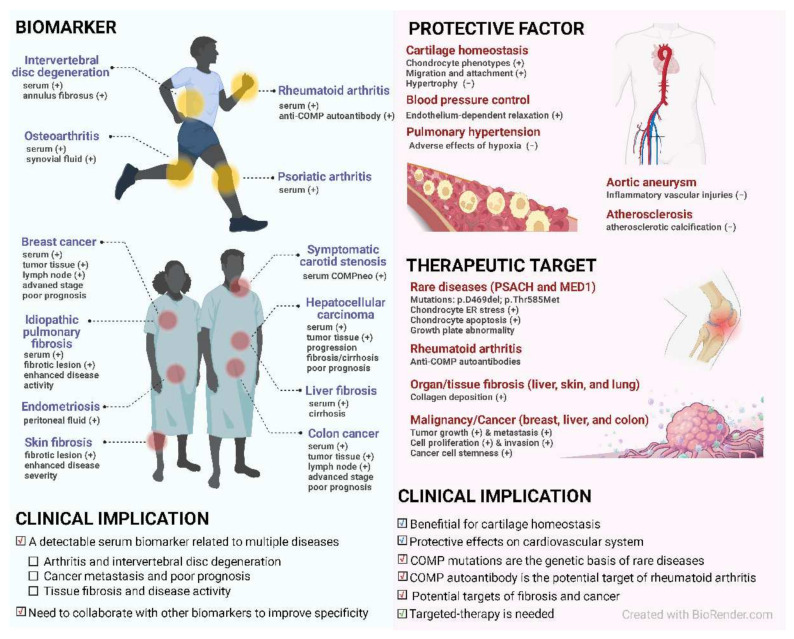Figure 2.
The clinical implications of COMP. COMP is widely associated with multiple diseases. COMP can act as a biomarker for osteoarthritis, rheumatoid arthritis, intervertebral disc degeneration, and psoriatic arthritis. Increased COMP in serum or synovial fluid indicates cartilage destruction. Moreover, serum COMP can be an indicator of cancer progression/poor prognosis, organ/tissue fibrosis, and other diseases/conditions. COMP shows distinct functions in different diseases. COMP is a protective factor for cartilage homeostasis, blood pressure control, pulmonary hypertension, and other cardiovascular diseases, while COMP is a potential target for rare skeleton diseases, rheumatoid arthritis, fibrosis, and cancer. Plus signs in parentheses in the blue panel indicate the increased levels of COMP in patients compared with healthy individuals or controls. Plus signs or minus signs in parentheses in the red panel indicate promotion or inhibition, respectively. PSACH, pseudoachondroplasia; MED1, multiple epiphyseal dysplasia type 1; COMPneo, COMP neoepitope, a fragment generated by COMP degradation; ER, endoplasmic reticulum.

